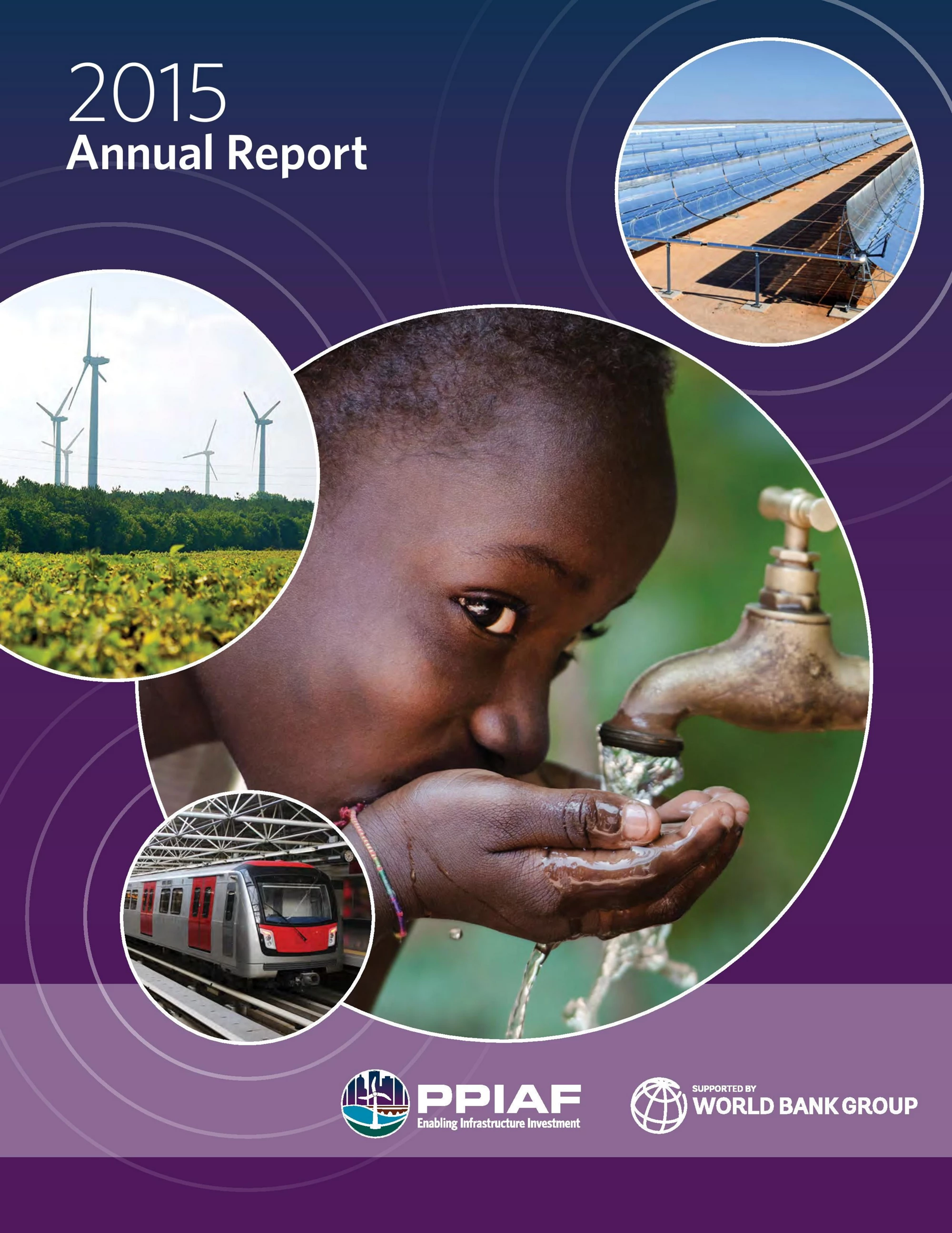
PPIAF, in partnership with IFC, has been providing institutional support to Rwanda’s Energy, Water, and Sanitation Authority (EWSA) since 2012. The technical support PPIAF and its partners have been providing helped government officials develop a more comprehensive understanding of EWSA’s distribution network and operational performance. Through training and experience-sharing, PPIAF supported capacity building among government institutions and officials, enabling them to work successfully with the private sector.
This is just one of the many examples of positive outcomes that PPIAF’s support has made possible in the past year. PPIAF’s just-released annual report details many others, and it also outlines the significant strategic shifts, staffing changes (including the reopening of our West African office), and programmatic initiatives that took root last year.
New year, new beginnings
Fiscal Year 2015 (July 2014 – June 2015) brought significant changes to PPIAF. A new strategy was approved in 2014 by donors, and implementation began; specifically, PPIAF launched a number of large programmatic initiatives in the technical assistance field. In West Africa, we are supporting the West African Economic and Monetary Union, under which umbrella member countries create an institutional architecture to facilitate regional and national PPP projects. In the Caribbean, we are supporting the creation of a regional PPP framework. In South Asia, we are helping Bangladesh scale up the national PPP program.
The City Creditworthiness Academy created with PPIAF support in 2013 continues to provide training academies to sub-national entities to teach new ways of investing in low carbon and resilient infrastructure. PPIAF's Sub-National Technical Assistance program has been supporting municipalities and cities, including Kampala City and Dakar, to help them achieve creditworthiness. Gaining this credibility will help these authorities access capital market financing to invest in better infrastructure services.
On the knowledge product side, an important study has been launched that will outline the particular constraints of Infrastructure regulation systems in low income and fragile and conflicted states. As with all other strategic knowledge initiatives, this one been undertaken in partnership, leveraging the recognized expertise of the Public Utility Research Center (PURC).
Looking at the big picture, PPIAF has approved 60 activities for close to $17 million in over 30 countries during this fiscal year. Fifty-four percent of activities we approved were in low income countries (DAC I and DAC II as categorized by the Organization for Economic Co-operation and Development). In addition, six of the countries supported were fragile states, and these represent 10 percent of the portfolio for a total of $1.63 million. Assisting fragile states is a priority under PPIAF’s recently adopted strategy, and we are meeting the goals that have been set in this area.
The new report highlights all of the the activities approved this year, the results achieved, our monitoring, evaluation and learning methods, and the financial standing of the program. Feedback and questions are welcome at ppiaf@ppiaf.org.


Join the Conversation